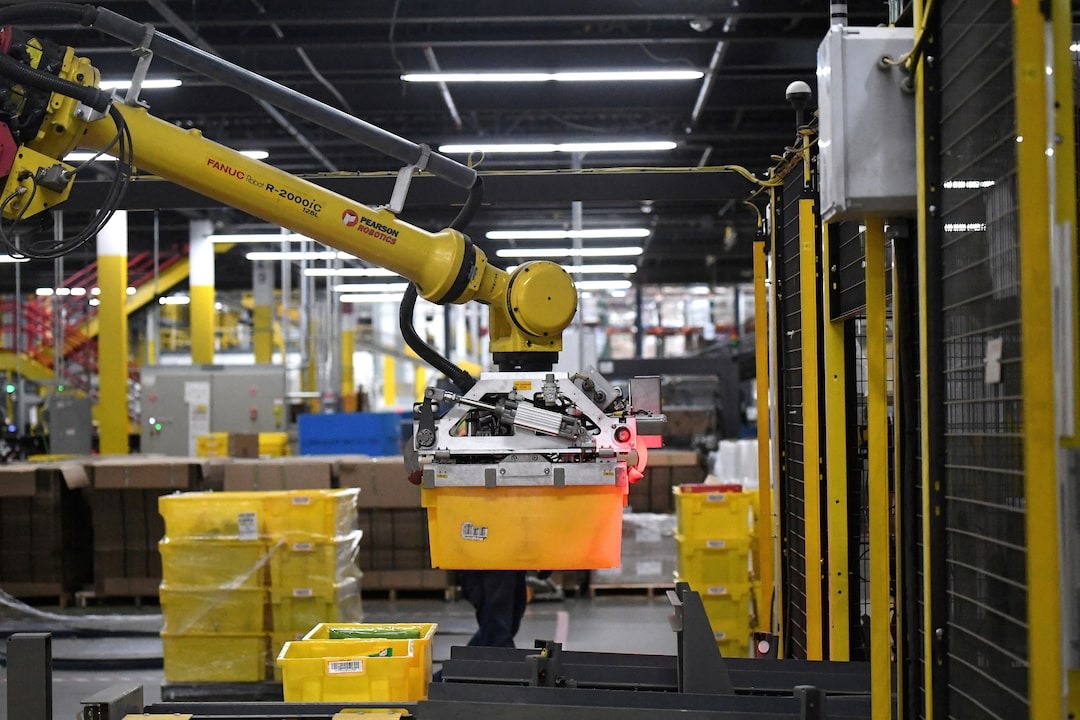The investigation, initiated on 2/9 under Section 232 of the Trade Expansion Act of 1962, was announced on 24/9.
The findings could lead to increased import tariffs on various products, including face masks, syringes, infusion pumps, robots, and machinery (such as computer numerically controlled mechanical systems and industrial presses).
The Department of Commerce is asking companies to detail their projected needs for robots and industrial machinery, as well as "the capacity of domestic production to meet those needs," and the role of foreign supply chains, particularly from major exporters like China. Businesses must also assess "the impact of foreign government subsidies and unfair trade practices."
 |
A robotic arm in an Amazon warehouse in Maryland (USA). Photo: *Reuters* |
Other goods potentially subject to tariffs include surgical masks, N95 masks, gloves, protective gowns, and other medical supplies like intravenous bags, bandages, sutures, wheelchairs, crutches, and hospital beds.
Pharmaceuticals and unmanned aerial vehicles are also currently under investigation under Section 232, an inquiry that began in April. In early August, US President Donald Trump announced plans to impose tariffs of up to 250% on imported pharmaceuticals—the highest rate he has ever proposed.
During his second term, President Trump's Department of Commerce has launched numerous investigations into imported products to assess national security risks. These have targeted wind turbines, aircraft, semiconductors, heavy trucks, polysilicon, copper, lumber, timber, and strategic minerals.
Import tariffs are a central focus of Trump's economic and national security policies. In just a few months, the US President has imposed tariffs on most trading partners. He has also applied tariffs to specific products, from aluminum and steel to automobiles and auto parts.
Ha Thu (*Reuters*)












